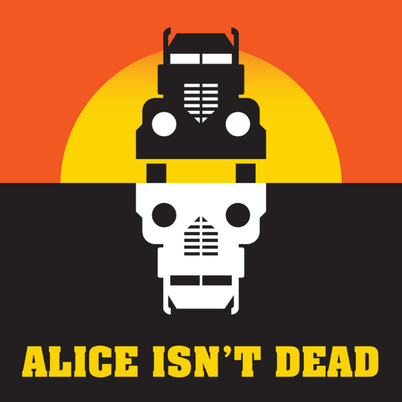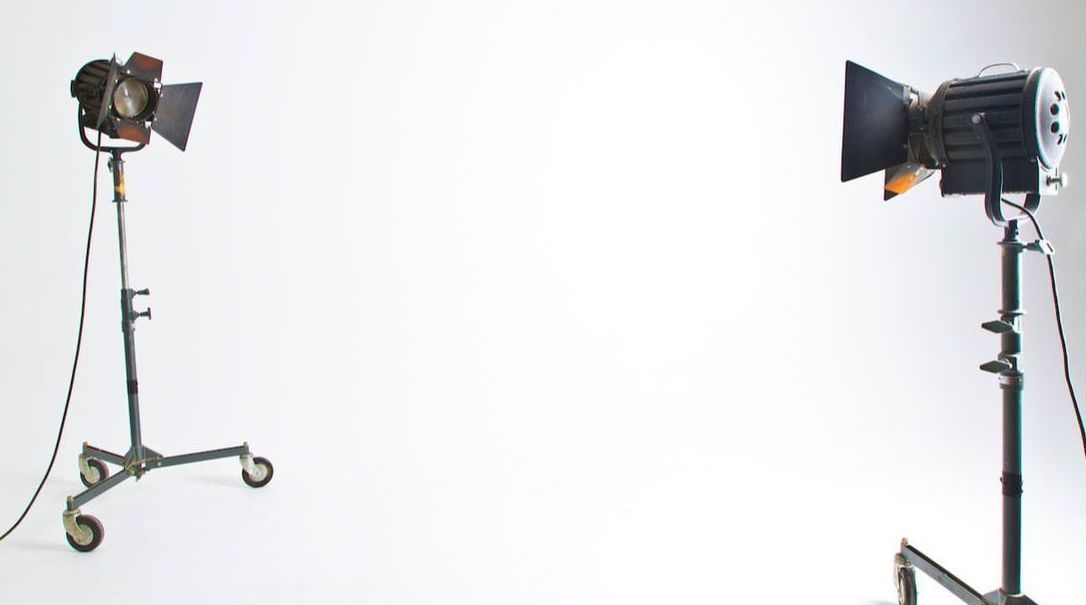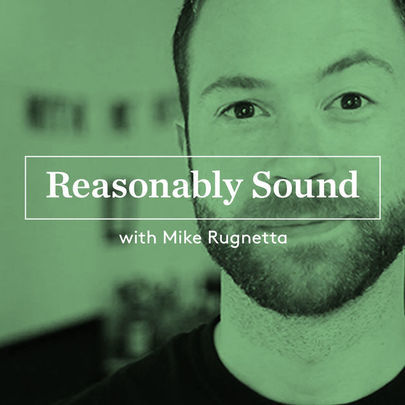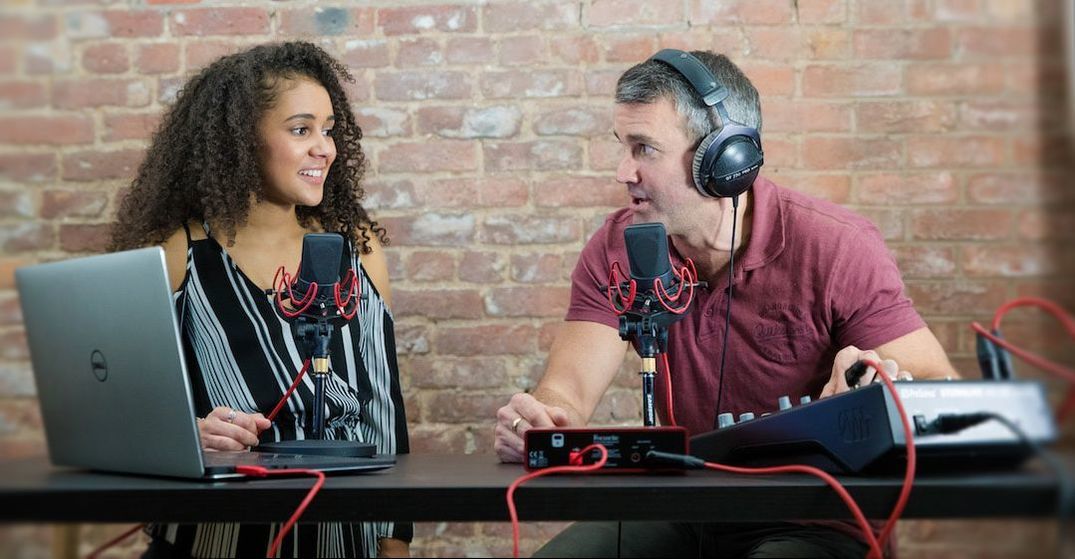Should I Write a Podcast Script?
Writing podcast scripts is a personal thing. Some people choose to fully script entire shows word for word. Whilst others have just a title and improvise the rest. However you choose to plan out your episodes, it’s best to have something to refer too, even if it’s a rough script.
There’s no right or wrong type of podcast script. It’s impossible to tell you exactly how to write your content. Instead, follow the tips below. Hopefully, by the end, you might find the type of script that suits you.
Structuring Your Podcast Script
Whatever type of podcast you have in mind, it makes sense to plan and structure everything out so you can present the best shows as possible. In many ways, it’s easier to follow a script so you have an outline of what to cover (for now at least).

Talking from a script doesn’t mean reading big chunks of text word for word. Listeners will be able to tell and it will sound stiff and uninspiring. Podcasts are intimate, you’re talking directly to someone so you need to be conversational. That’s why you should have a loose structure.
As each episode is different, they should have their own themes, topics, and length to distinguish themselves apart.
- Theme: What will your episode be about? Do you have an overall theme that your topics will fall under?
- Topics: Do you have something in mind that you want to discuss? Does it fall into your theme?
- Length: How long with your episode be? Will it be consistent with other episodes or sporadic?
Say you’re podcast is about cooking. Using the guide above jot down an overall plan on what you want to cover in your episode, like so...
- Theme: Eating healthy meals on a budget.
- Topics: Meal planning for the week, 200-400 calorie dishes worth trying, snacking right, and what foods to avoid.
- Length: 20-40 minutes.
When you have a rough outline of what you want to discuss, structure your episode point by point like this:
- Intro: Who you are and what you’re going to discuss (30-60 seconds).
- Music Jingle: Plays at the start of each episode so listeners can easily identify your podcast (30 seconds).
- Topic 1: Setting up your theme and topics (5 minutes).
- Topic 2: Discussing your topics in detail (10 minutes).
- Interlude: Music break or sponsor ad (30 seconds).
- Topic 3: Continuing discussing your topics (10 minutes).
- Outro: Summary of theme and topics with conclusion (5 minutes).
- Closing Remarks: Thank the listener and talk about your next show (2 minutes).
- Music Jingle: Plays at the end of each episode so listeners can easily identify your podcast (30 seconds).
Including Personality & Branding (The Sooner The Better)
Everyone seems to have shorter attention spans these days. According to Statistic Brain, the average attention span in 2015 was 8.25 seconds, down from 12 seconds in 2000.
Your podcast intro is the first impression, so you better make it count by injecting your personality and branding from the get go. You have just a few seconds to convince your listeners why they should stick around.

Connect with your listeners as soon as possible. Tell a joke, say a witty comment, or tell an interesting story so they’ll stay tuned in. For example, fictional serial Alice Isn’t Dead always starts with an excerpt to hook in listeners before introducing the show.
Once hooked, you’ve got a chance to establish a relationship with your listeners to try and convert them into loyal fans (or customers if you’re selling merchandise). You need that initial hook as early as possible to get the ball rolling.
Keeping It To The Point
When writing a podcast script, try and keep it as tight as possible. Don’t add unnecessary words or sentences that don’t add to what you’re trying to say. For example, your introduction should be short and to the point (aim for 10 - 15 seconds), giving listeners a glimpse without bombarding them with information, like this (GOOD):
Hi and welcome to my podcast where I’ll be discussing ways you can eat healthy meals on a budget!
Avoid overloading your introduction (BAD):
Hi! Welcome along to my really awesome health eating podcast. Have I got one heck of a show lined up for you today! We’ll be discussing some great meal planning tips, calorie dishes, snacking treats, foods to avoid, and a whole lot more. If you want to eat right, then we’ll go into detail during the show.
Podcasting is at it’s best when it doesn’t sound rigid, whether that’s fully scripted or not, so make sure your grammar is as concise and succinct as possible. This way you or a fellow presenter can improvise and expand on what’s written in the script.
Setting the Scene (Helping Your Audience Visualise)

Unlike television or online video, podcasting requires imagination to visualise what you’re talking about. Whether you’re breaking a news story or telling a joke, you need to set the scene for your listeners.
This doesn’t mean that you have to describe every detail. Instead, you need to be aware that the listener may need a helping hand to know what you’re talking about. For example, if you’re on location recording a segment with a guest then it should go like this:
I’m talking to you from sunny California with a very special guest Ernesto Andrade. Ernesto is a top leading expert in cooking healthy dishes. He’s going to list his top 5 dishes you can cook at home!
Even if it’s just a short and simple introduction, providing context and visual aids helps your listeners get a clearer picture.
Choosing the Right Music
Music helps set the tone of your podcast. Although, there’s plenty to choose from, you want one that completely matches your show in a couple of ways. Consider the following:
- Is the music overwhelming? It can distract the listener and be heard to hear when it’s a voice over.
- Is the music interesting? Listeners will hear this over and over, so make sure it’s not annoying.
- Does the tone of the music fit with your show? Dark ominous sounds might not be right for a cooking show.
- Is your music unique enough to stand out? Other podcasts might be using the same music.
- Is your music free to use? Avoid legal issues by using royalty free music (that doesn’t require buckets of cash).
Try places like Free Music Archive, Bandcamp, or Jamendo Music for a wide selection of jingles and introductions you can use.
Limiting CTAs (Why You Should Save Them for the Start & End)
Listeners tend to remember the start and end of shows the best. CTAs (Call To Actions), should really be limited so they’re the first or last thing listeners hear.
Hearing too many CTAs over and over again can turn into background noise, eventually being tuned out by listeners. If you have several things you’d like your listener to do, like signup to newsletter, visit your website, or follow you on social media, it’s best to pick one of these things for each episode. That way it sounds fresh and organic to get more traction.

Take Reasonably Sound, a show which revolves around some topic related to sound. At the start and end, the host clearly states where listeners can go to donate money to help run the show. The message is clear, concise, and doesn’t muddy the rest of the show with CTAs.
Just like Reasonably Sound, you should focus on one or two CTAs during your show. Mention them at the start and end for maximum impact.
Reading Your Script Aloud
A common mistake podcasting make is writing in a style that doesn’t translate well when spoken aloud. It’s often a huge mistake to write too formally, which results in stiff-sounding show. A script should sound natural, like you’re talking to a friend.

Keep the language and style you write your script in, which is usually casual, conversational, and friendly. For example, replace words like “do not” and “there is” with “don’t” and “there’s”. Try and limit technical terms that the average joe might not know (if you do, explain them briefly). Always write a podcast script with the thought of speaking naturally and with a good flow in mind.
Ready to Write a Podcast Script?
Now it’s over to you! Hopefully, these tips lay the foundations to structuring out your shows to get the best content possible. If you need help writing your podcast scripts, then be sure to get in touch with us at [email protected].









